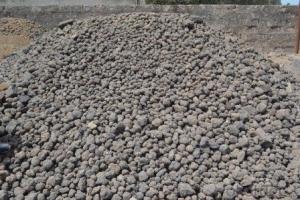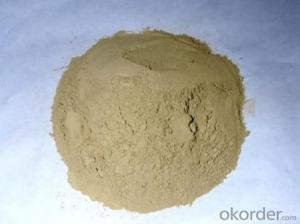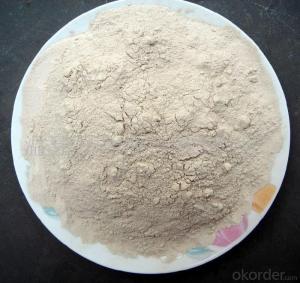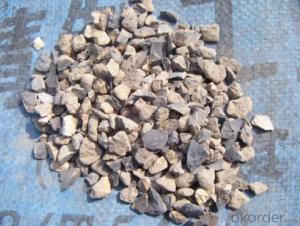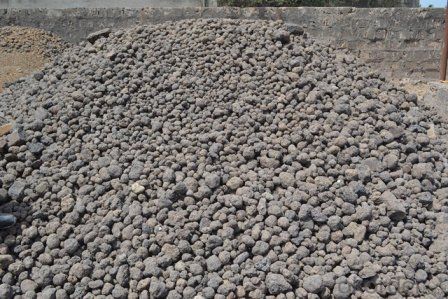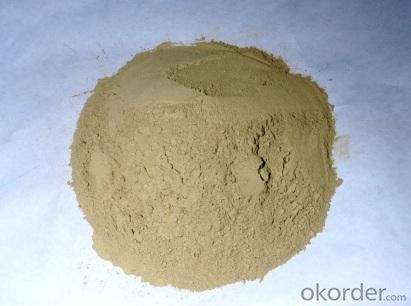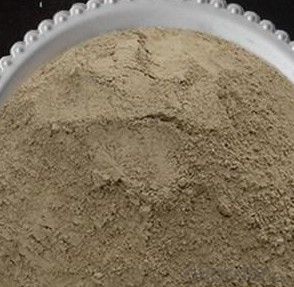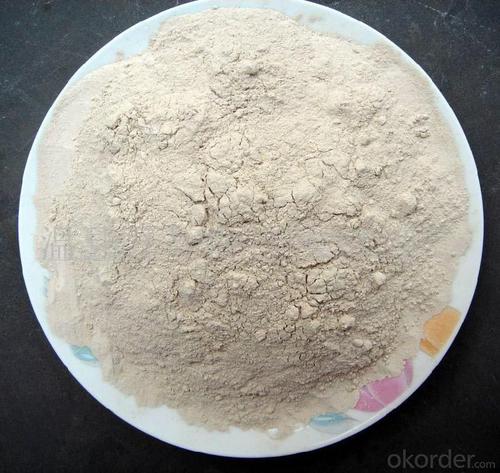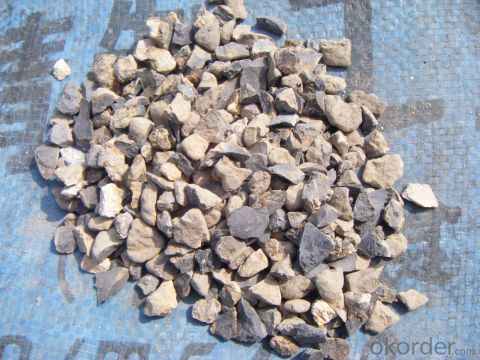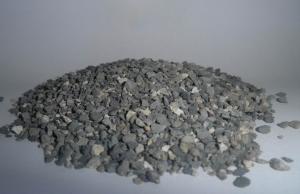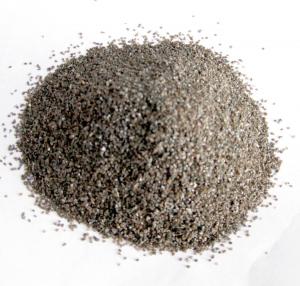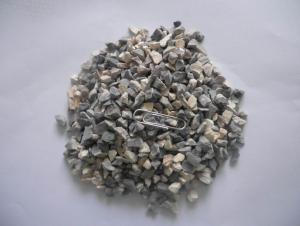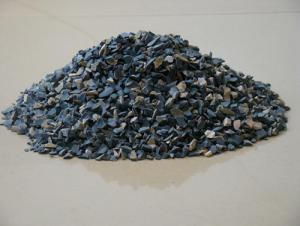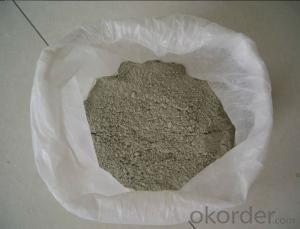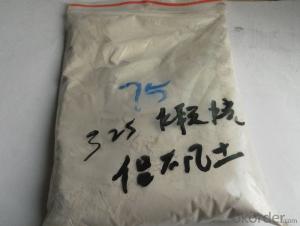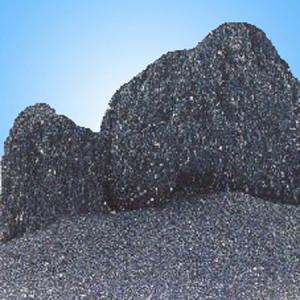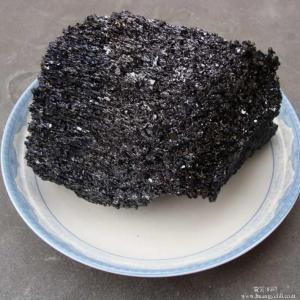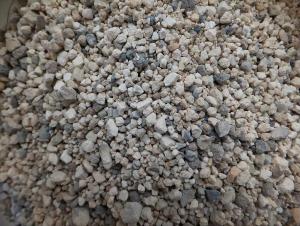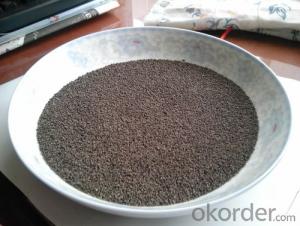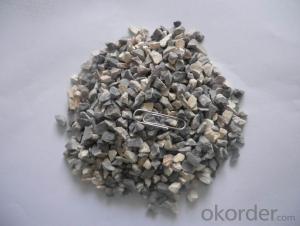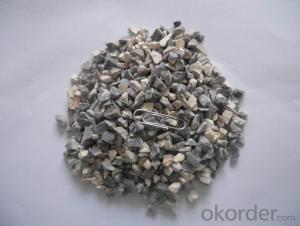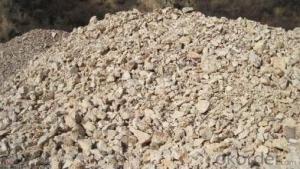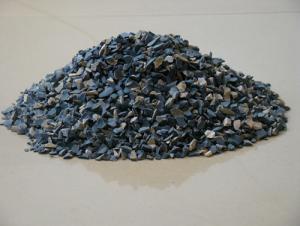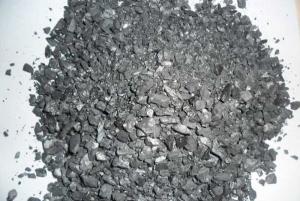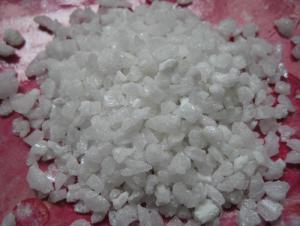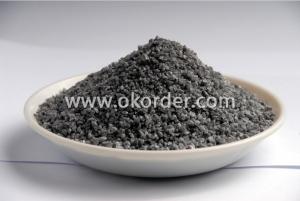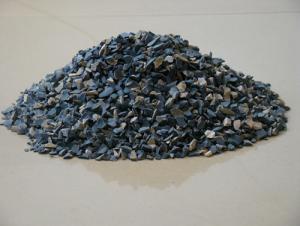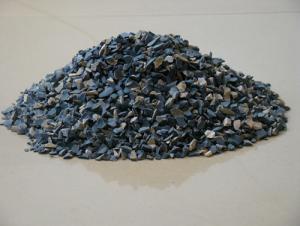Raw Materials for Refractory:Refractory Grade Calcined Bauxite 78% Al2O3 Sands
- Loading Port:
- Tianjin
- Payment Terms:
- TT OR LC
- Min Order Qty:
- 25 m.t.
- Supply Capability:
- 12000 m.t./month
OKorder Service Pledge
OKorder Financial Service
You Might Also Like
Refractory Grade Calcined Bauxite 78PCT Al2O3 Sands
Calcined Bauxite Introduction
Property | Specifications |
Name | aluminous soil ; bauxite |
Color | White, offwhite, auburnish yellow or light red (with Fe) |
Bulk Density | 2.55~3.6 g/cm3 |
Hardness | 1~3 |
Main usages | 1. Aluminium metallurgy 2.Refractory |
Calcined Bauxite Specifications

Calcined Bauxite Applications
1. Aluminium metallurgy
2. Precision casting / Investment casting:
bauxite grog fines can be made into mold for precision casting.
3. Refractory: high alumina bauxite’s refractoriness can reach 1780°C.
It is charactered by good chemical stability and mechanical performance. (Al2O3 ≥48% with low Fe2O3)
4. Aluminium silicate refractory fiber: The high alumina bauxite grog can melt under 2000°C-2200°C in the electric arc furnace.After a series of processing, it can become aluminium silicate refractory fiber,
which can be made into fiber blanket, plate,cloth.
5. Mixing magnesia and bauxite grog with binders to pour the molten steel ladle for better overall lining
performance.
Usage
(1) aluminium industry. Used in national defense, aerospace, automotive, electronics, chemical industry,
daily necessities, etc.
2 precision casting. Alumina clinker made after the mould precision casting processed into fine powder.
Used in military industry, aerospace, communications, instrumentation, machinery and medical equipment department.
(3) is used for refractory products. High bauxite clinker refractoriness is as high as 1780, chemical stability strong,
and good physical properties.
(4) aluminum silicate refractory fiber. With light weight, high temperature resistance, good thermal stability,
low thermal conductivity, heat capacity is small and the advantages of resistance to mechanical shock.
Used in iron and steel, nonferrous metallurgy, electronics, petroleum, chemical, aerospace, atomic energy,
defense and other industries.
(5) in magnesia and bauxite clinker as raw materials, add the appropriate binder,
used for pouring ladle whole ladle lining has particularly good effects.
(6) manufacture alumina cement, abrasive materials,
ceramic industry and chemical industry can be aluminum of various compounds
Pictures:
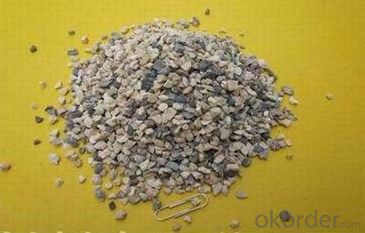
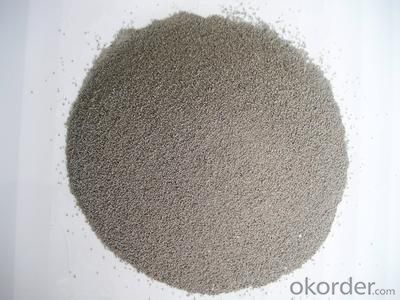
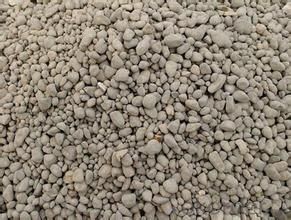
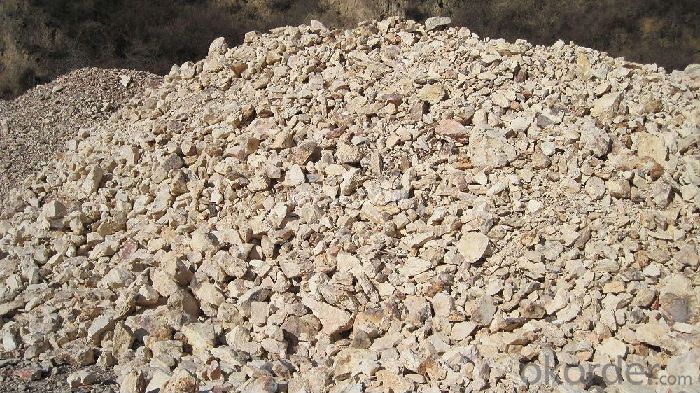
Remarks:
1) If you have special requirement for the specifications, we can have a talking to know if we can meet it. Usually, our skills and equipments are no problem. It's up to the production cost related to the bauxite raw ores we purchase;
2) Wide sizes variety is available as per customer's request.
- Q: Technical scheme of refractory for refuse incinerator
- Incinerator conditions and requirements for refractory lining1, working conditions: deal with rare earth, furnace body normal use temperature of 800~900 degrees.2, the specific requirement for refractory: refractory has good resistance to acid corrosion, thermal shock performance good stability and good high temperature.
- Q: How can refractory materials be divided?
- Refractory materials in China can be roughly divided into refractory products and unshaped refractories.
- Q: Do you know the refractories?
- Alkaline material products: MgO, CaO based crystalline phase, because MgO and CaO are alkaline earth oxides, so it is called alkaline refractory. Their high melting point, alkali resistance slag (C/S > 2) corrosion ability is strong, belong to advanced refractory materials, but they are easy to hydration. Magnesia chrome brick, dolomite brick, brick olive and other products, the main chemical composition is MgO, CaO China also belongs to alkaline materials.
- Q: What refractories are accessible with ease in daily life? This material is suitable as a disposable mold and crucible for melting brass.
- Common red?brick and refractory brick.
- Q: What are the technical requirements for refractories?
- To put it simply, physical indicators are pores, volume density, pressure resistance, slag resistance, thermal shock resistance, foot expansion coefficient, thermal conductivity, oxidation resistance and so on. If it is castable, the indicators are mobility, water rate, setting time, and anti bending strength. If it is coating mix, the bonding strength should be checked. Chemical indicators are loss of ignition and the content of aluminum, magnesium, silicon, calcium, chromium, titanium and carbon.
- Q: What is the definition and classification of amorphous fire resistance materials?
- 9.8. brick made of refractory bone material and powder material can be used directly or after adding appropriate liquid formulation Refractory paint. Refractory slinging material 6. Prefabricated cubes, bonding agent or other additives. fire-resistance sparying material compround additives. Refractory pressed into the material, binder. Refractory ramming material 3, The material is a new fire proof material without calcination Heavy aggregate and lightweight aggregate: Inorganic binding agent and organic bond, its fire resistance is not less than 1580. Refractory castables 2 mouldable refractory Classification according to the type of bonding agent: 1. Classification according to refractory aggregate. According to the production and construction method, refractory mud or refractory mire, with a certain proportion of the mixture
- Q: Who know about the knowledge of acid refractory material? Please explain in detail.
- Refers to the silicon dioxide
- Q: What level is the rock wool board fireproofing material ?
- The most important feature of the rock wool board is fireproofing, which is a non-combustible material and absolute A-level! It has the specialized external wall rock wool board, which can be found online.
- Q: Fefractory of aluminium oxide.
- Do you mean the alumina hollow ball brick? We can exchange private messages in specific.
- Q: Does anyone know the fire endurance of steel stud partition?
- The fire endurance degree is 1 hour. which is in line with the national building material fireproofing test standards. CaSo4.2H2O is molecular gypsum molecular structure formula, containing 20% ??water, crystal water and free water, when putting on fire, 10% of the surface water will slowly evaporate, remaining10% of crystal water. It is a class A fire retardant material itself. The longest time can be 4 hours.
Send your message to us
Raw Materials for Refractory:Refractory Grade Calcined Bauxite 78% Al2O3 Sands
- Loading Port:
- Tianjin
- Payment Terms:
- TT OR LC
- Min Order Qty:
- 25 m.t.
- Supply Capability:
- 12000 m.t./month
OKorder Service Pledge
OKorder Financial Service
Similar products
Hot products
Hot Searches
Related keywords
